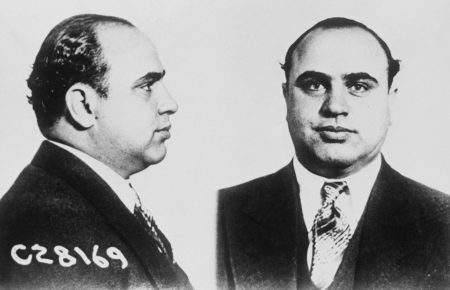Marriage is a significant milestone for every couple, but mixed nationality couples typically face even more challenges. This is certainly the case when one spouse is a U.S. citizen and the other a non-U.S. citizen.
Beyond the romantic bliss, this union introduces various complex U.S. tax considerations not faced when both partners are U.S. citizens. Today’s article focuses on managing estate and gift tax issues that arise when one partner does not have U.S. citizenship.
5 Takeaways:
1. Making tax-free gifts to a non-citizen spouse is governed by special rules and is subject to annual dollar limitations.
2. Careful planning is required for bequests to a non-citizen spouse to be free of estate tax.
3. If estate tax will be owed when assets are left to a non-citizen spouse, payment can be deferred until the surviving spouse passes away if planning is implemented.
4. When the non-U.S. citizen spouse makes gifts or bequests to the U.S. citizen spouse there is no tax impact, but IRS reporting may be required, with severe penalties if not timely.
5. “Gift-splitting” to make larger gifts tax-free to others is often not possible when one spouse is not a U.S. citizen.
Before delving into details, here are a few critical basics. The U.S. gift and estate taxes are transfer taxes, imposed on the transfer of assets by way of gift, or on the transfer of assets at death. The tax is paid by the gift-giver or the estate at rates of 18-40% on the fair market value of the assets transferred. A lifetime gift and estate tax exemption may reduce or eliminate these taxes. The exemption currently stands at a generous $13.61 million per individual (this is set to expire December 31, 2025, dropping to approximately $7.5 million). The exemption is first used to offset gift taxes on taxable gifts made during one’s lifetime. Unused amounts are available at death to reduce estate taxes.
Gifting: There Is No Unlimited Marital Deduction
When gifts are given to a U.S. citizen spouse, an unlimited marital deduction is permitted. Gifts are completely exempt from gift tax regardless of amount.
One aspect that often catches couples unaware is the absence of this unlimited marital deduction when the recipient spouse isn’t a U.S. citizen. If a U.S. citizen spouse gifts assets to their non-citizen spouse, gifting tax-free is subject to annual limits indexed for inflation. Gifts to a non-U.S. citizen spouse in 2024 can be tax-free only if the annual aggregate does not exceed $185,000. Any gifts made in the calendar year beyond this super-annual exclusion amount will result in the U.S. spouse using some (or all) of the lifetime exclusion and possibly paying gift tax. Strategic planning is needed to optimize tax efficiency in wealth transfers.
Leaving Bequests: Again, No Unlimited Marital Deduction
Similar to gifting, leaving bequests to a non-U.S. citizen spouse also lacks the benefit of the unlimited marital deduction that is available when the surviving spouse is a U.S. citizen. If a U.S. citizen passes away leaving assets directly to the non-citizen spouse estate tax could be imposed. Assets exceeding the lifetime exemption threshold are taxed at rates up to 40%, posing significant financial implications for heirs. Couples should explore alternative estate planning strategies, such as trusts.
Using A Qualified Domestic Trust (QDOT)
A QDOT may offer a strategic solution since it permits a U.S. spouse to leave property exceeding the lifetime exemption amount to a non-U.S. citizen spouse and to defer estate tax. All property, no matter how much it is worth, left to a non-citizen spouse in the QDOT is allowed the marital deduction. The estate tax that would otherwise be assessed on the property can generally be deferred (not eliminated) until the non-citizen spouse dies. Managing QDOTs requires careful compliance with various tax rules and ongoing reporting obligations.
Reporting Gifts and Bequests Received from a Non-U.S. Spouse
When the non-U.S. citizen spouse makes gifts or bequests to the U.S. citizen spouse, no gift or estate tax is imposed, nor is the recipient taxed on the value of what was received. While there is no tax, the U.S. spouse could still have an IRS information reporting obligation covering the receipt of foreign gifts or bequests if the aggregate amount exceeds $100,000 in any year. Failure to report can result in hefty penalties.
Gift-Splitting Technique Is Curtailed
Gift-splitting is a technique that permits a married couple to combine their individual annual gift tax exemptions to expand the possibility of making gifts to others free of gift tax. Currently, an individual can gift $18,000 per recipient per calendar year without the gift-giver having any exposure to gift tax. The number of recipients is unlimited. Gift-splitting lets the married couple use $36,000 per recipient per year, without any limit on the number of recipients, provided they follow certain filing procedures. Unfortunately, gift-splitting is not permitted if either spouse is a non-U.S. citizen and also non-U.S. resident.
Tailored Tax Strategies
Marriage between a U.S. citizen and a non-U.S. citizen brings about a myriad of U.S. gift and estate tax considerations that demand careful navigation. Couples must proactively address these complexities to optimize tax efficiency and protect their financial interests. Consulting with experienced tax professionals and estate planners is crucial in developing a tailored strategy that aligns with their unique circumstances and long-term goals.
Send a note about an area of tax you’d like to see me write about.
Read the full article here
















